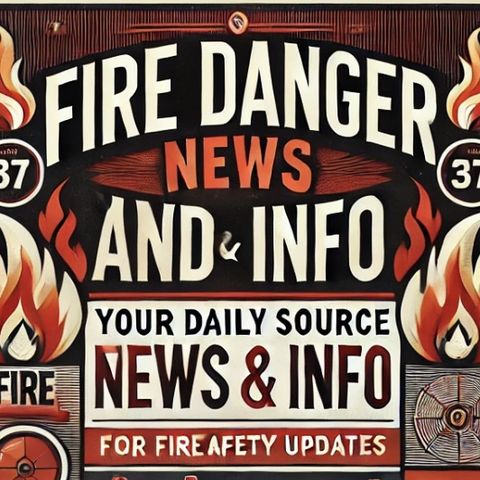USGS Plays Critical Role in Wildfire Mitigation and Management Across the Western U.S.

Download and listen anywhere
Download your favorite episodes and enjoy them, wherever you are! Sign up or log in now to access offline listening.
USGS Plays Critical Role in Wildfire Mitigation and Management Across the Western U.S.
This is an automatically generated transcript. Please note that complete accuracy is not guaranteed.
Description
The increasing frequency and severity of wildfires across the western United States necessitate a robust scientific approach to mitigate their impact. The U.S. Geological Survey (USGS) has been at the...
show moreWildfires not only pose significant risks to human lives and property but also trigger long-term environmental effects, such as soil erosion, water contamination, and habitat loss. To address these challenges, the USGS Wildland Fire Science program conducts intensive research aimed at all stages of wildfire management—prevention, response, and recovery.
Prevention is a critical component that involves understanding the factors contributing to wildfire risk. The USGS uses advanced tools like satellite imagery and geographic information systems (GIS) to map fire-prone areas and predict where future fires are likely to occur. By analyzing vegetation types, climate conditions, and historical fire data, scientists can create detailed risk assessments that inform local and federal agencies in their planning and resource allocation.
When a wildfire starts, real-time data becomes crucial for an effective response. The USGS provides critical support through its remote sensing capabilities. High-resolution satellite images and airborne sensors help track the fire’s spread, intensity, and direction. This information is vital for firefighters on the ground, allowing them to make informed decisions and deploy resources effectively. Additionally, the USGS collaborates with the National Interagency Fire Center to produce daily fire danger forecasts, ensuring readiness and strategic planning.
Post-fire recovery and mitigation of future risks are equally important. USGS scientists study the aftermath of wildfires to understand their impacts on local ecosystems and communities. Research focuses on soil stability, water quality, and vegetation regrowth. For instance, in areas prone to landslides following a fire, the USGS monitors soil conditions and provides data to help manage these secondary hazards.
Innovative technologies and interdisciplinary research are the cornerstones of the USGS’s approach. Collaboration with universities, governmental agencies, and international partners enhances the scope and effectiveness of their work. Projects often integrate ecological studies with advanced modeling techniques, leading to comprehensive insights into wildfire behavior and its broader environmental implications.
Public education and stakeholder engagement are also vital. The USGS’s outreach efforts aim to increase public awareness about wildfire risks and promote best practices for safety and preparedness. By making scientific findings accessible to policymakers, community leaders, and the general public, the USGS ensures that its research translates into tangible benefits for society.
For more detailed information on how USGS science is making a difference in the fight against wildfires, the USGS Wildland Fire Science webpage provides a wealth of resources, reports, and interactive tools that highlight their ongoing efforts and discoveries.
Visit our USGS Wildland Fire Science webpage to learn how USGS science is making a difference.
Information
| Author | QP-4 |
| Organization | William Corbin |
| Website | - |
| Tags |
Copyright 2024 - Spreaker Inc. an iHeartMedia Company
